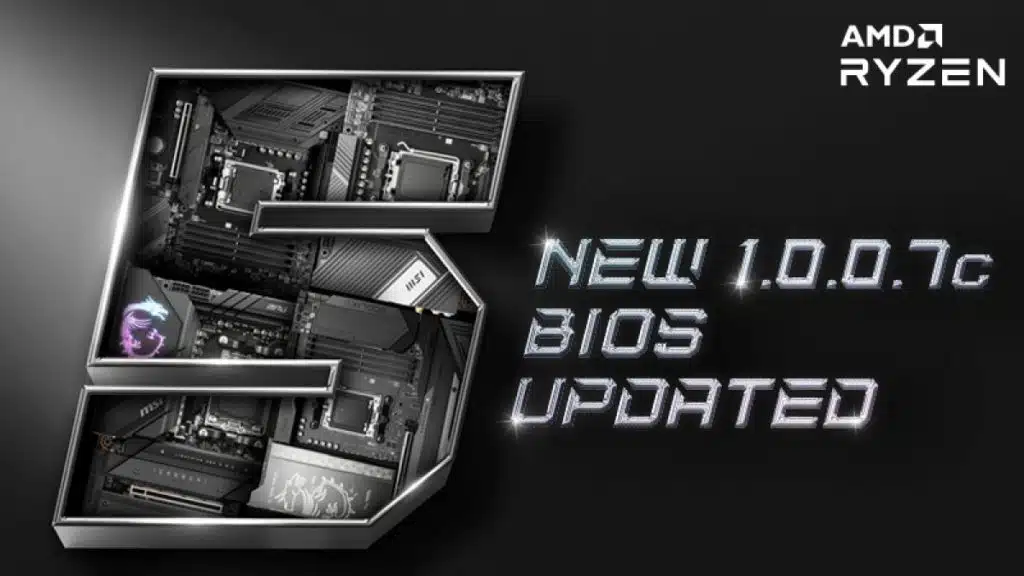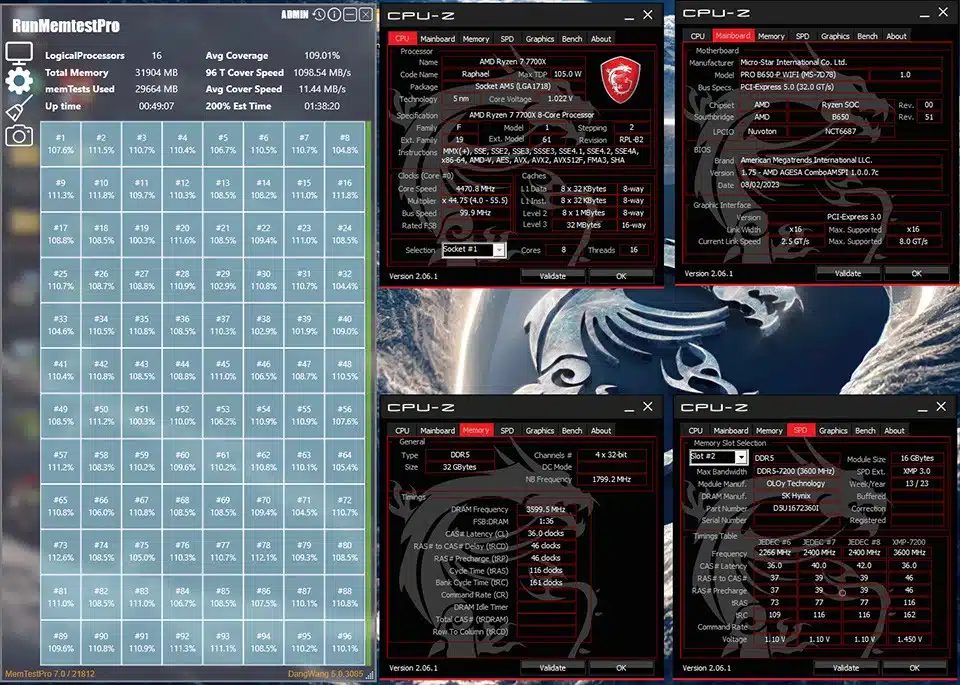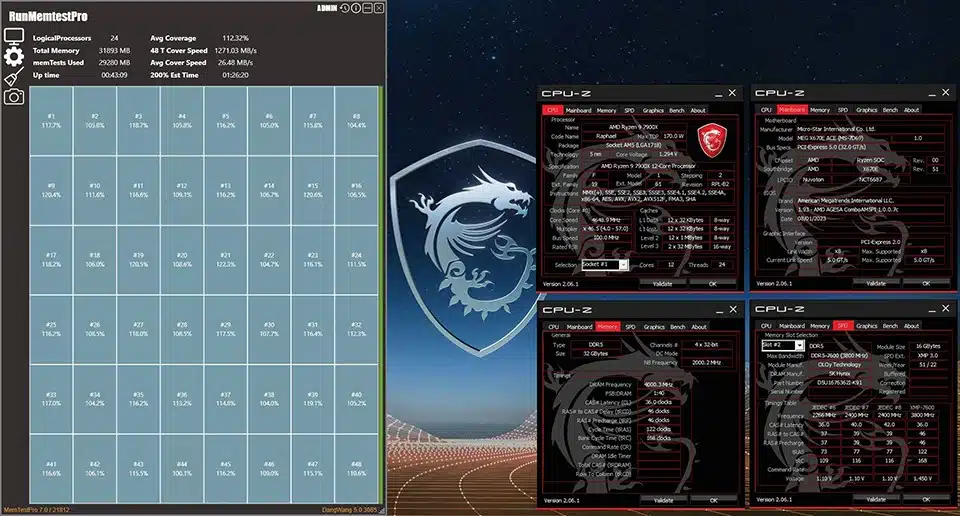
The MSI AMD AGESA PI 1.0.0.7c BIOS update is now available for most of MSI’s AMD AM5 600-series motherboard models. This AGESA update addresses stability bug fixes, patches some potential security vulnerabilities, and adds supports for higher frequency DDR5 modules. MSI is hoping to finish rolling out the update to all of its AM5 600-series motherboards by next week as currently two on its list that are not yet ready, the MAG X670E TOMAHAWK WIFI and B650M PROJECT ZERO.
Motherboard Models
- MEG X670E GODLIKE: Link
- MEG X670E ACE: Link
- MPG X670E CARBON WIFI: Link
- MAG X670E TOMAHAWK WIFI: Coming Soon
- PRO X670-P WIFI: Link
- MPG B650 CARBON WIFI: Link
- MPG B650 EDGE WIFI: Link
- MPG B650I EDGE WIFI: Link
- MAG B650 TOMAHAWK WIFI: Link
- MAG B650M MORTAR WIFI: Link
- MAG B650M MORTAR: Link
- B650M PROJECT ZERO: Coming Soon
- PRO B650-P WIFI: Link
- PRO B650M-A WIFI: Link
- PRO B650M-A: Link
- PRO A620M-E: Link
MSI has provided stress test screen shots of MSI PRO B650-P WIFI motherboard paired with a Ryzen 7 7700X processor and a certified DDR5 7200 kit along with a MSI MEG X670E ACE paired with a Ryzen 9 7900X processor hitting a stable 8000 MHz.


Press Release (via official global news page)
MSI, today, released a new AMD AGESA PI 1.0.0.7c BIOS update for all MSI’s motherboard X670E, X670, B650, A620 product line. For this new BIOS release, MSI focus on and prioritize mainly for higher DDR5 memory module support and also stability bug fixes. The latest update has huge significant increase for supported memory frequency on AMD Ryzen™ CPUs. Below is a list of models that will be ready at the time of the release while other models will have come support in the following week.
A few more updates specifically on the AGESA 1.0.0.7c added extra for protection for reliability than before and also patched a few potential vulnerabilities and security loopholes.
